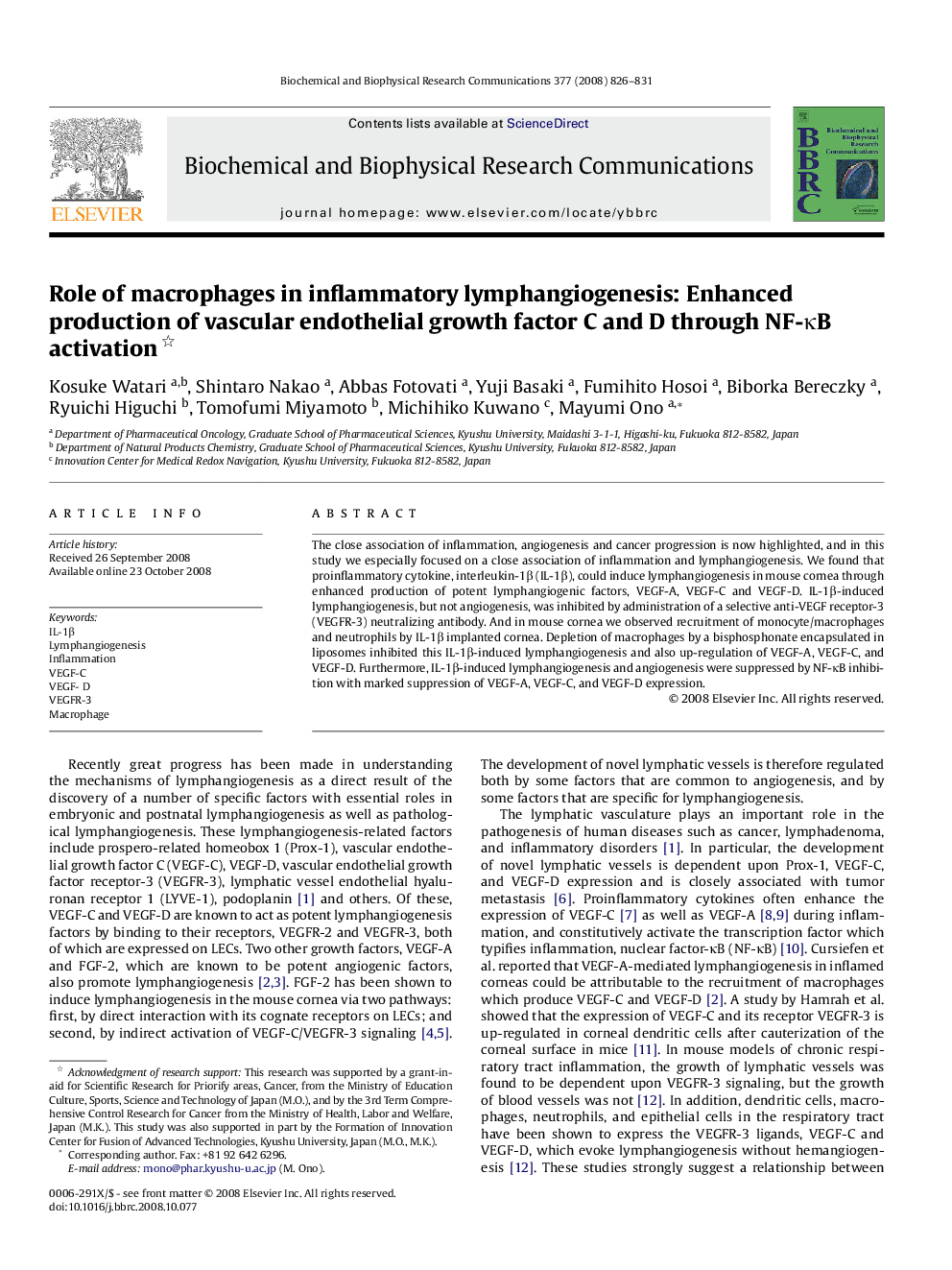| Article ID | Journal | Published Year | Pages | File Type |
|---|---|---|---|---|
| 1935233 | Biochemical and Biophysical Research Communications | 2008 | 6 Pages |
The close association of inflammation, angiogenesis and cancer progression is now highlighted, and in this study we especially focused on a close association of inflammation and lymphangiogenesis. We found that proinflammatory cytokine, interleukin-1β (IL-1β), could induce lymphangiogenesis in mouse cornea through enhanced production of potent lymphangiogenic factors, VEGF-A, VEGF-C and VEGF-D. IL-1β-induced lymphangiogenesis, but not angiogenesis, was inhibited by administration of a selective anti-VEGF receptor-3 (VEGFR-3) neutralizing antibody. And in mouse cornea we observed recruitment of monocyte/macrophages and neutrophils by IL-1β implanted cornea. Depletion of macrophages by a bisphosphonate encapsulated in liposomes inhibited this IL-1β-induced lymphangiogenesis and also up-regulation of VEGF-A, VEGF-C, and VEGF-D. Furthermore, IL-1β-induced lymphangiogenesis and angiogenesis were suppressed by NF-κB inhibition with marked suppression of VEGF-A, VEGF-C, and VEGF-D expression.
